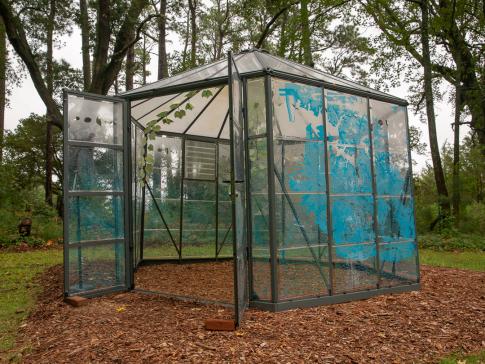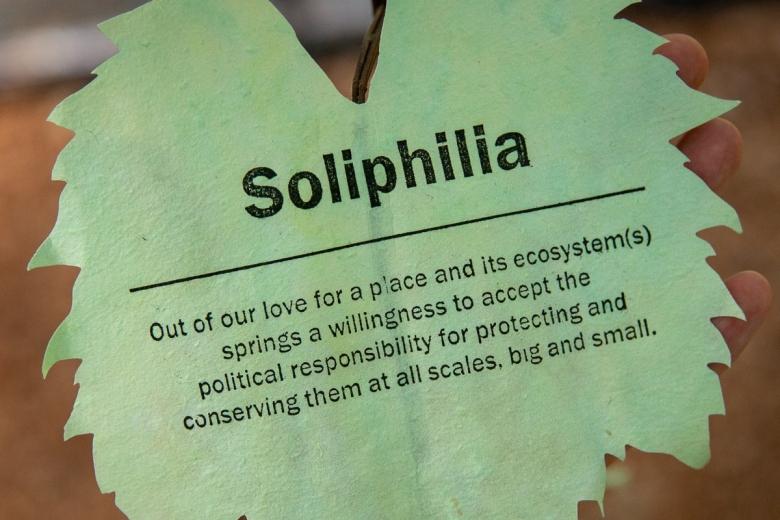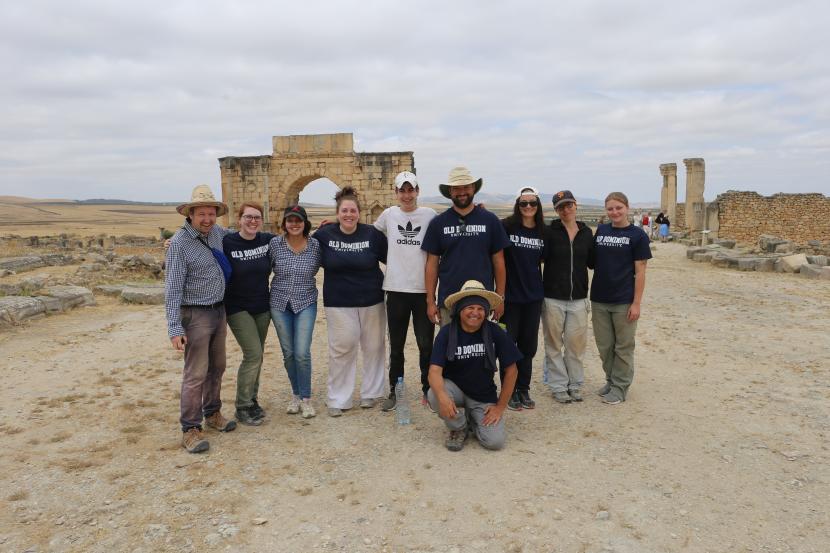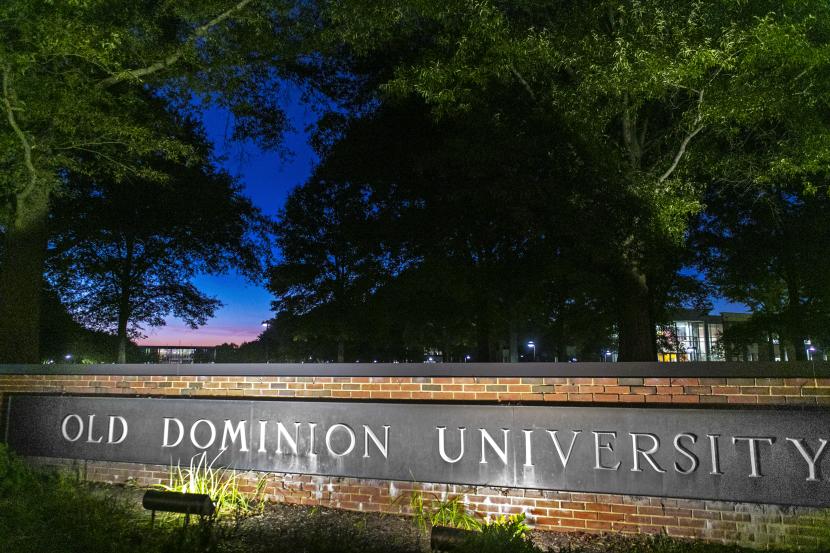By Amy Matzke-Fawcett
Three Old Dominion University faculty are giving voice to the impacts of sea level rise through poetry and art.
Brendan Baylor and Natalia Pilato, assistant professors in Old Dominion University's Department of Art, and Kelly Morse, instructor in the Department of English, have created a participatory outdoor sculpture to draw attention to the effects of sea level rise in Norfolk and beyond. Located on the grounds of Norfolk's Hermitage Museum and Gardens, the project's creators have hung handmade paper laser-cut in the shape of grape leaves and printed with the words created by community participants regarding the social and ecological impacts of climate change.
The original proposal, funded in part by a grant from the Virginia Arts Commission and selected by The Hermitage for its "Unknown Outcomes: A Coastal Virginia Collaboratory," was to make a socially engaged art project with people from Hampton Roads.
The plan was to make a screen-printed greenhouse structure, then add the leaves made by community members. The printing process was supposed to be in person; Morse and Pilato planned to go into local schools for outreach events to get a diversity of ages and people.
But as with many things during the COVID-19 pandemic, the project has taken on its own resilient form to grapple with social distancing. Now, those who want to participate can submit their words online and the project's creators make the leaves. The turn to online has allowed the creators to "crowdsource with a larger lens," they say.
According to the project's creators, "This piece is inspired by the work of ecological philosopher Glenn Albrecht, who has coined terms like solastalgia, which is the mental distress caused by negative environmental change in a place one loves or resides. Poetry and text prompts were developed to generate writings that capture participants' feelings about the current climate crisis. This gives community members the power to meditate upon their experience, name it and provide opportunities to approach these problems from new angles."
The art installation and its makers also felt the effects of climate when Tropical Storm Isaias dragged the exhibit more than 20 feet. Many of the paper elements were destroyed. It was temporarily closed for repair but has since reopened.
"This added another unforeseen element to the process, as we were forced to collaborate with nature and the actual effects of climate change during the process," Pilato said.
"The project has moved into the realm of the internet, which is not something we signed up for but now it's a key part of the project," Morse added.
Every submission will be posted on the exhibit's Instagram account, but only some will be installed in the greenhouse.Although the project will come down in October, the artists hope that it will live on and travel to other cities to spur action and conversation.
"We're hoping that other museums and other communities will pick it up," Baylor said. "Norfolk has unique issues with climate destabilization, but it just might look very different depending on where you are."
The project is on view at the Hermitage Museum until Oct. 2. For more information, including hours and how to submit, visit the Hothouse Project website.








